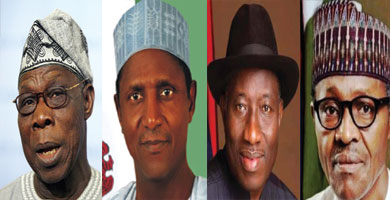
Our May 29 Special Report explains
By Babajide Komolafe
As the nation marks the 22nd year of democracy rule, the economy is still marked with poor macroeconomic performance with pockets of improvement in some sectors.
In terms of improvement, most notable is the telecommunication sector, which again, recorded the highest growth rate of 6.7 per cent in the first quarter of this year (Q1’21). This is due to the full liberalisation of the sector and entrance of the mobile telephone companies. As a result, the country now has 216 million connected telephone lines at the end of March 2021. This is a country that could only boast of less than 500,000 lines before the year 2000 when the telecommunications sector was liberalised.
Next is the banking sector, where a combination of recapitalisation exercises, introduction of varying reforms measures including cashless policy, Biometric Verification Number (BVN) has led to increased adoption and geometric rise in the use of electronic channels for payment of goods and services. As a result, the value of electronic payment transactions rose to N21.9 trillion in 2020 from less than N200 billion 2006.
Another pocket of improvement in the story of Nigeria’s economy is the emergence of the pension sector. Thanks to the Pension Reform Act of 2004, which was amended in 2014, Nigeria now has a pension industry comprising 25 Pension Fund Administrators (PFAs), four Pension Fund Custodians (PFCs), with pension assets of N12.3 trillion as at the end of March 2021.
Weak Economic Growth
Notwithstanding these laudable improvements, the economy is still characterised by weak Gross Domestic Growth (GDP) growth amidst steady population growth.
Though the average GDP growth rate during the 22 years of democracy stands at 5.1 per cent, average growth for the past six years (2015-2020) is 0.68 per cent, far below the average population growth rate of about 2.5 per cent per annum since 1999.
The impact of this growth trend on the populace is rising unemployment and poverty levels. The rate of unemployment rose to 33.3 per cent in the fourth quarter of 2020 (Q4’2020) from 3.79 per cent in 1999.
The result is the persistent high level of poverty incidence in the country. According to the NBS, 40.1 per cent of Nigerians are living below the poverty line of N137,430 per annum in 2019. Further more, the country became the World Poverty Capital in 2018. According to the World Poverty Clock compiled by Brookings Institute, United States, Nigeria in 2018 overtook India as the country with the largest number of people living in extreme poverty, with an estimated 87 million Nigerians, or around half of the country’s population, estimated thought to be living on less than $1.90 a day.
Causes of Weak Economic Growth
A major cause of Nigeria’s weak economic growth is the mono-product nature of the economy in terms of revenue source.
In spite of various pronouncements, policy measures and efforts to diversify the revenue base of the country, crude oil has continued to dominate government revenue and foreign exchange income.
CBN data shows that oil revenue accounted for 48 per cent of total revenue into the federation account in 2020.
Consequently, Nigeria’s economy is continuously exposed and has suffered severely from sharp decline or fluctuations in prices of crude oil as experienced in 2008, 2014 and last year due to the impact of the COVID-19 pandemic.
Naira depreciation
Another fall out of the country’s over dependence on crude oil is the unending trend of naira depreciation.
During the three periods of sharp decline in crude oil price indicated above, the nation recorded sharp decline in dollar earnings and also in the external reserves, leading to dollar scarcity in the economy and hence rise in the exchange rate.
Thus from N89 per dollar at the end of 1999, the exchange rate rose steadily to N410 per dollar. This implies the 360 per cent depreciation of the naira during the 22 years of democracy.
Inflation and deficit spending
Resulting from the unending trend of Naira depreciation as well as the heavy import dependent nature of the country, the economy has been characterised by rising prices of goods and services, with the inflation rate mostly in the double digit zones (above 10 per cent). For example, the annual inflation rate has been above 10 per cent since February 2016.
On the fiscal side, the economy has been characterized by rising fiscal deficits and public debt due to the over reliance on oil for revenue and export earnings worsened by the spells of sharp decline in crude oil prices.
According to data by the Federal Ministry of Finance, the FG recorded deficit spending of N6.1 trillion in 2020. This represents a 5,765 per cent increase from N104 billion in 2000.
Also due to increased borrowing to fund the fiscal deficit, total public debt rose to N32.9 trillion in Q1’21 from N7.55 trillion in 2012. This represents an increase of 336 per cent.
Parlous infrastructure
Another major factor that contributed to the weak performance of the economy during the 22 years of democracy is the continued parlous state of the nation’s infrastructure be it electricity, road and railway.
Even after 22 years of democracy and privatisation of power distribution companies and generating companies, power supply is mostly below 5,000MW, while the average Nigerian home enjoys less than nine hours daily power supply.
Furthermore, businesses still rely more on trucks to move goods across a network of roads mostly characterized by potholes, irritating police road blocks even amidst threat of kidnap and armed robbery attacks.
Insecurity
The country has been facing serious security challenges that have badly affected investments, agriculture, education and human lives lately. It has been a sad commentary from the northeast to the northwest. North central has not been spared. And now Southwest, southeast and south south have all been battling serious security conditions that government’s policy to diversify the economy has remained unaccomplished. Terrorism, Kidnapping, banditry, armed robbery have made many parts of Nigeria unsafe, denying the economy investors and tremendously cutting down on food production which has contributed to inflation.
Way Forward
Stressing the necessity of economic diversification while highlighting measures needed to tackle the challenge of weak GDP growth and over dependence on crude for revenue, analysts at Financial Derivatives Company, said: “The Nigerian government needs to intensify its revenue generation efforts and step up measures towards economic diversification to reduce its vulnerability to oil price shocks.
“The current focus on the development of the agriculture sector is commendable. However, there is the need for an effective monitoring process to track the progress of several agriculture interventions schemes and areas requiring improvement.
“The government should also adopt business friendly economic policies to encourage growth in other sectors of the economy such as manufacturing, mining, trading and ICT.
“This will help broaden the government’s revenue base and reduce reliance on oil. Moreover, the government needs to be committed to fiscal discipline to prevent an increase in the country’s debt burden and the risk of a credit rating downgrade.”
Credible election challenge
By Clifford Ndujihe, Politics Editor
Since the return to civil rule in 1999, one of the challenges Nigeria has been trying to surmount is that of conducting credible elections.
Beginning from the first series of elections on December 5, 1998 when the first local council polls of the Fourth Republic were conducted to the 2019 general elections, balloting has been characterised by ballot snatching, falsification of figures, fielding of unqualified candidates, malfunctioning of card readers, intimidation and harassment of voters, and violence among others.
Consequently, the outcome of many elections have been nullified by the courts, a reason we now have staggered governorship elections in eight states.
So far, transmission of election results is still an issue. Diaspora and electronic voting is far from sight. Already, future polls and the 2023 general polls are being threatened by insecurity, and burning of Independent National Electoral Commission, INEC offices and electoral materials by arsonists. In less than 24 months, the commission has suffered 41 attacks across the country.
Attempts by the National Assembly to give Nigerians an amended Electoral Act that will take care of some of these challenges did not hit the bull’s eye because President Muhammadu Buhari did not assent the bill and the lawmakers could not veto him with two-third majority.
Less than two years to the 2023 polls, it is uncertain if a new electoral act will be in place.
Speaking on these issues, Chief Chekwas Okorie, founder of the United Progressives Party, UPP, and a chieftain of the ruling All Progressives Congress, APC, lamented that Nigeria’s democracy has been roundly manipulated, occasioning socio-economic, developmental and political set backs.
His words: “Yes, Nigeria has been in a democratic governance for an unbroken period of 22 years but our democracy has been mostly checkered, manipulated and exploitative.
“At the commencement of the present democratic dispensation in 1999, the outgoing military administration led by Gen Abdul salami Abubakar, in conspiracy with some retired military Generals decided who they preferred to become elected President of Nigeria. They settled for retired General Olusegun Obasanjo who was then serving prison terms for purported accessory to a failed coup d’etat. Processes were quickly put in place for his eventual victory at the polls, which was largely manipulated and contrived.
“That election marked the beginning of the continuous short-changing of the Nigerian electorate of their inalienable right to choose legitimately elected leaders at all the strata of our elections.
“This fundamentally flawed process of leadership recruitment instituted in 1999 and consolidated over the years has been largely responsible for the poor and corrupt political leadership that has adversely inflicted Nigeria and Nigerians with retarded and scandalous political, economic and social development and growth.
“However, Nigerians began to recover albeit slowly their right to elect their leaders democratically, beginning with the 2015 general election. Again in 1999 the outgoing military government foisted on hapless Nigerians an obnoxious Constitution which concentrated political powers at the centre and denied the federating units the latitude to explore and exploit their comparative advantages for economic growth and expansion.
READ ALSO: Foreign Direct Investment drops 29.7% to $362.8 m in H1’20
“The constitutional amendment process currently embarked upon by the 9th National Assembly provides the country with a last ditch window to address the several ills of our federalism. A comprehensive amendment of our Constitution including the Electoral Act is about the only hope we have for the sustainability and stability of Nigeria as a sovereign nation.”
Education: Reeling under serious threats
By Adesina Wahab
There is no doubt that since the start of the Fourth Republic in 1999, a lot has been happening in the education sector. More schools have sprung up at all levels, the government and the private sector doing the show. For instance, with one private university, the Igbinedion University, Okada, Edo State being licensed as at 1999, the nation now has 99 licensed private universities and many more are still waiting in the wing. The Federal Government has 43 degree awarding institutions, while the various state governments have 48. The number of public and private primary and secondary schools runs into thousands.
However, with a population put at about 200 million, the nation cannot be said to have enough schools at all levels, even though the figures have gone up.
Has access to education improved?
An education expert, Mr John Akinleye, opined that while there are more schools than before, access to education has not really improved.
“Starting with primary school level, despite the implementation of free primary education in states across the country, many children are still not in school. We all know some of the factors responsible for this. Moreover, is it not surprising that some state governments are denying their citizens free primary education by not paying the counterpart funds to give their State Universal Basic Education Boards access to funds from the Universal Basic Education Commission?
“A number of states have been suspended from accessing funds by UBEC because some are in the habit of using the funds for other things. If it is at secondary school level, the number of public secondary schools is not growing to meet up with the population growth rate and not all parents can afford to send their wards to private schools.
“The tertiary education system is hard hit. Over 2,000,000 candidates would sit for the Unified Tertiary Matriculation Examination, UTME, less than 500,000 would be admitted. Also, not all parents and guardians can afford to send their wards to foreign universities, “ he noted.
Misery Index factors
Misery Index simple means how the rate of unemployment and inflation affects the well being of the citizens of a country. The Head of Department of Economics, Lagos State University, LASU, Prof. Ibraheem Bakare, in a recent interview with our corespondent, said unemployment and high inflationary trend in Nigeria have not only affected the well being of the people negatively, but also eroded some of the gains made earlier in the education sector.
“There is no way the number of out-of-school children, OSC, would not increase. Parents and guardians that are supposed to cater for the need of the children are barely surviving. Many have lost their jobs and unfortunately, in this clime, there are no social safety nets to cushion the effects of such happenings on the people.
“Even some palliative steps the various governments are taking or promising such as school feeding programme, how effectively are they being implemented? Most government policies are not implemented to favour the average citizens, “ he noted.
Poor funding of the sector
According to the National President of the Academic Staff Union of Universities ASUU, Prof. Biodun Ogunyemi, only God knows when Nigeria would comply with international standards of allocating enough funds to education. “Since the beginning of the current democratic dispensation, Nigeria has not allocated up to the recommended percentage to the sector. In fact, we barely have 10 percent. In the last few years, it has been worse. If we don’t have the funding that is necessary, how do we progress and compete with other nations?
“In Nigeria, if we are even able to maintain the level we were in the 1970s to the 1980s when we had foreign students and lecturers in our universities, it would be good. We have agitated endlessly for a better funding of the sector, “ he said.
Insecurity, a novel hindrance
When in April 2014, school girls from Government Girls Secondary School, Chibok, Borno State were abducted, it was a novel way of hammering education and creating fear in students, teachers and parents.
“Now, our innocent children have become objects of merchandise. They have become what some criminal elements now use to make illicit money. We now have to begin to bargain how much to pay or not to pay to secure their release, “ said Alhaji Haruna Danjuma, the National President of the National Parent Teacher Association of Nigeria, NAPTAN.
After the Chibok experience, another set of school children were kidnapped in Dapchi, Yobe State in 2015. Between last December and April, this year, no fewer than 800 students have been abducted from schools across some states in the Northern part of the country.
“Where is the Safe School Initiative? asked the National Secretary of the Nigeria Union of Teachers, NUT, Dr Mike Ene. According to him, some people simply wanted to dissuade others from going to school. “Our government knew from previous experiences that schools have become soft targets for criminal elements, but what steps have they taken to prevent a recurrence? This is a great setback to education, “he said
The most painful aspect of attacks on educational institutions so far has been the kidnap of students of Greenfield University in Kaduna. Five of the students have been killed and some are still kept at an unknown destination as at press time.
Have we done well?
Going by submissions by various stakeholders in the sector, it appears that the country has rather taken some steps backwards while taking one forward. This is evident in the country becoming the global capital of out-of-school children, about 15 million.
Vanguard News Nigeria
The post Nigeria down in 22 yrs! Why? appeared first on Vanguard News.










![[Video] Speaking In Tongues - Oyereyi](https://1.bp.blogspot.com/-_AsYnQoWjCs/YTy9dQfbceI/AAAAAAAAQyM/bUPsq9lMM_UHqmspyN2qCp4x5hAc2iUywCLcBGAsYHQ/w680/Screenshot_20210911-152304%257E2.png)






Advertise your business here at cheap rate and get large audience to your market. Call/Msg Teemikemedia: 07060733664 to get started.